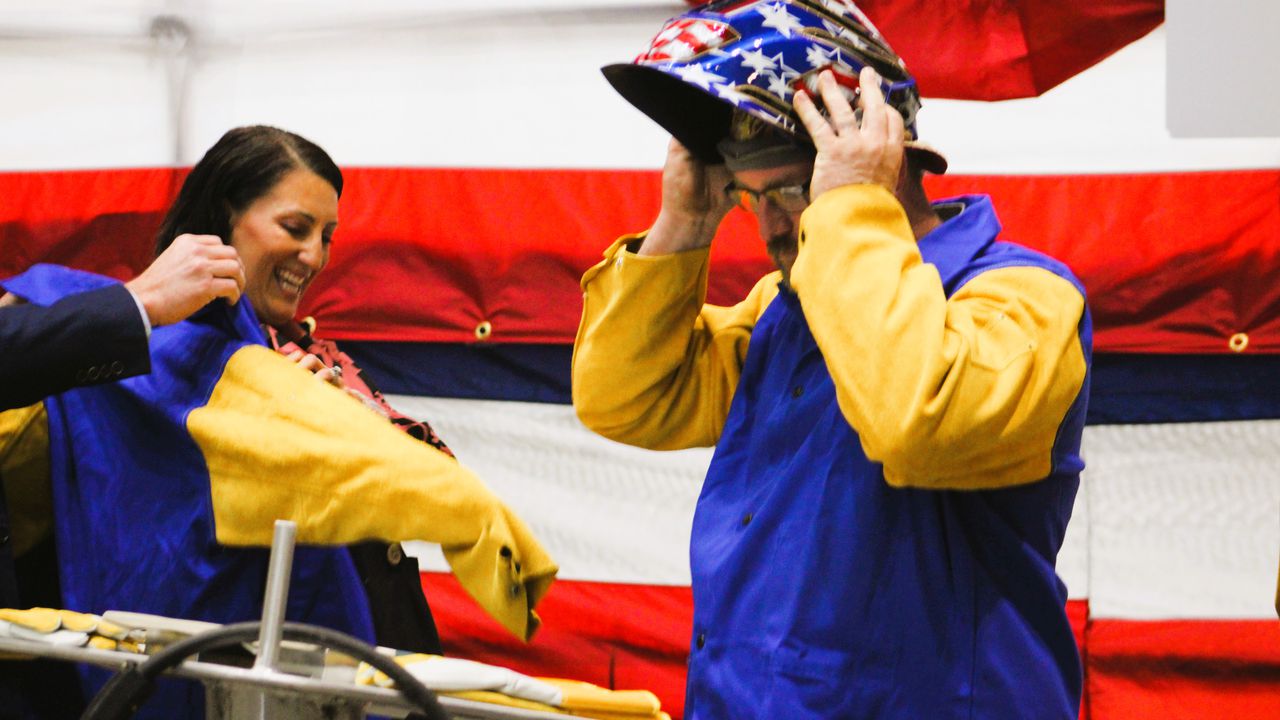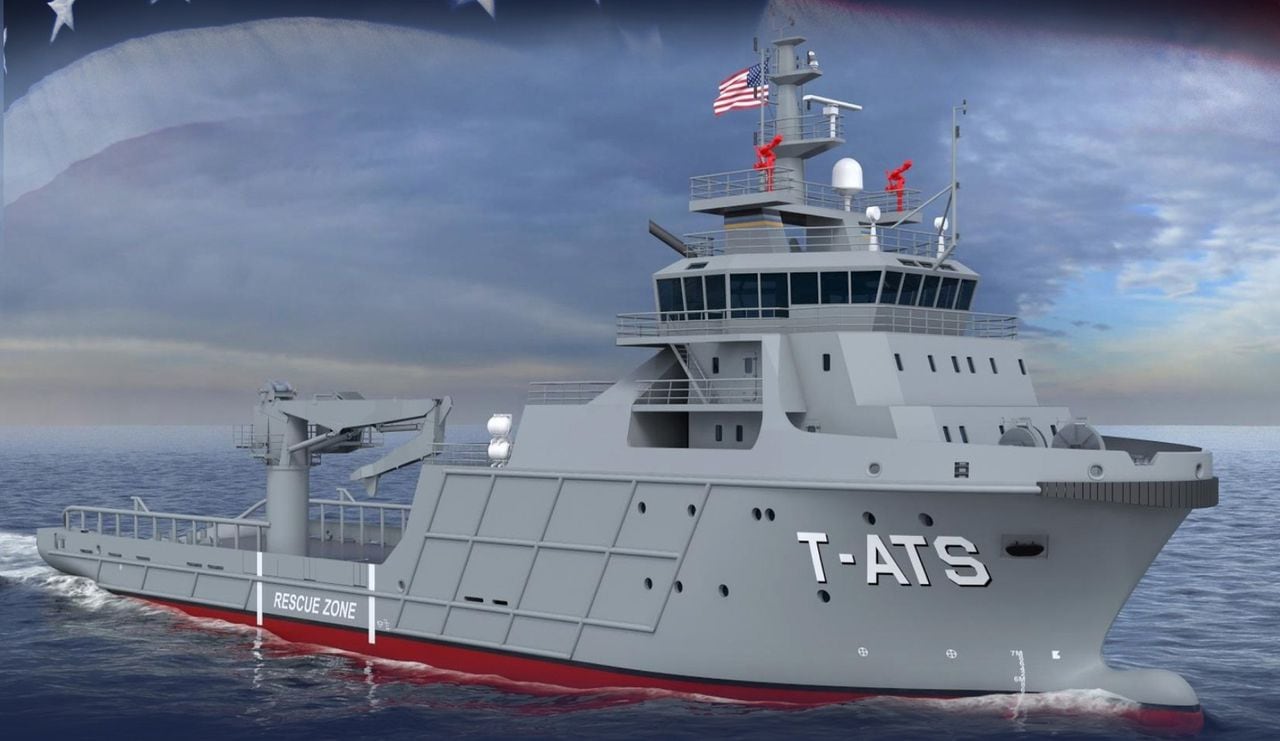Native American leader honored as Austal lays keel of first steel ship
Austal USA laid the keel for its first steel ship on Tuesday, a symbolic milestone not just in the life of the ship but of the shipyard itself. In the process, the shipbuilder and the Navy paid tribute to a Native American man who served in the U.S. Marine Corps and went on to become a respected advocate for Native American rights and environmental concerns.
The ship, designated T-ATS 11, is one of several Navajo-class towing, rescue and salvage ships that Austal is under contract to build in Mobile. When it enters service it will become the USNS Billy Frank Jr.
Frank died in 2014 at age 104 after an eventful life. Born into the Nisqually tribe in Washington state, he served in the Marine Corps for two years in the 1950s. He went on to become a champion of tribal fishing rights and posthumously received the Presidential Medal of Freedom in 2015.
In Tuesday’s keel-laying ceremony, William Frank III and his wife, ship sponsor Peggen Frank, burned their initials into a steel plate that will be fixed within the ship. Peggen Frank, using the traditional language of the ceremony, certified that the keel had been “well and truly laid.”
Larry Ryder, vice president of business development and external affairs for Austal USA, said “the fact that we have, I think, six tribes represented today shows you the importance of this event.”
“Today’s ceremony is especially meaningful for Austal USA as it is the first keel-laying we’ve had for a steel ship,” said Ryder. “So it’s a big deal for the shipbuilders you see here.”
The T-ATS is a U.S. Navy ship that combines the capabilities of an oceangoing tug with those of a rescue and salvage ship.U.S. Navy/Austal USA
Though changing economic conditions have caused Austal USA’s parent company to designate the deal as “onerous,” the fact remains that securing it was a major development in Austal’s transition from a builder specializing in aluminum work into one able to compete for more plentiful steel work. More steel contracts, including one for construction of U.S. Coast Guard cutters, have followed.
U.S. Navy Capt. Ryan Bohning described Frank as “a man of uncommon courage and character” whose participation in fishing protests resulted in him being arrested 50 times. Frank “persevered against great odds to protect Native American rights,” he said.
“From the bottom of my heart this is truly an honor,” said William Frank III, chairman of the Nisqually tribal council. “To have this opportunity to really educate people about who my father was, about who our tribes are.”
It was a striking contrast to a past era in which Native American children were sent to boarding schools where they couldn’t speak their tribal languages or observe tribal ways, he said. “To think about where we are today, in 2023, where we’re getting a Navy ship named after one of our own tribal members, that’s huge.”

Peggen Frank dons welding gear as Austal USA structural fitter Brandon Auld prepares to help her burn her initials into a plate to be fixed inside the future USNS Billy Frank Jr.Lawrence Specker | [email protected]
Peggen Frank joked that the way things are going, her late father-in-law will end up with more awards and accolades than arrests. She said she believed that if he could have been present, he’d be grinning from ear to ear “and we’d be hearing that big, deep, Billy laugh. Can you hear it? I can.”
She said Billy Frank Jr. had been a “powerful beacon” of cultural strength in changing times, and that the ship bearing his name will carry that spirit into the waters of the world in years to come.
As the Franks welded their initials onto the plate, they were assisted by A-class structural fitter Brandon Auld.
T-ATS 11 is the first of five Navajo-class ships to be built in Mobile, according to Austal.
